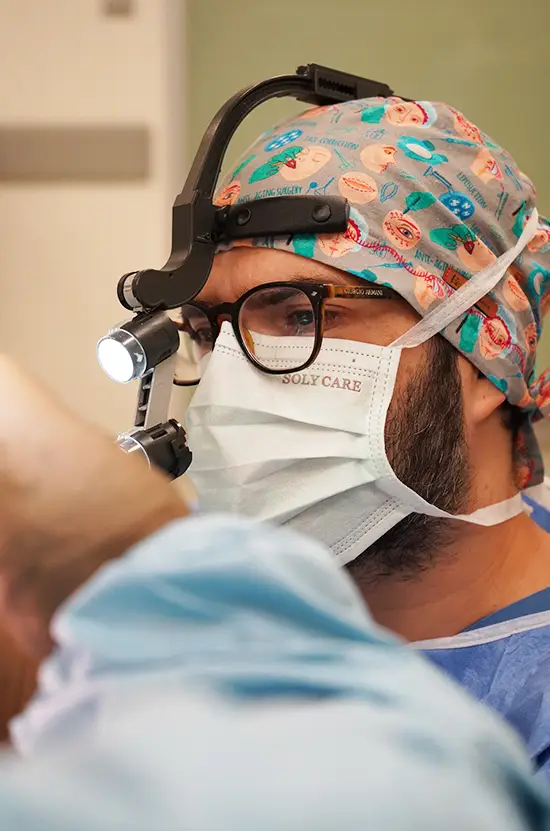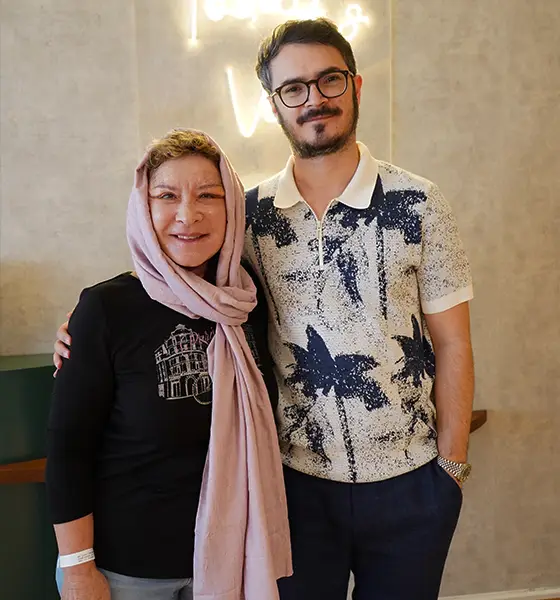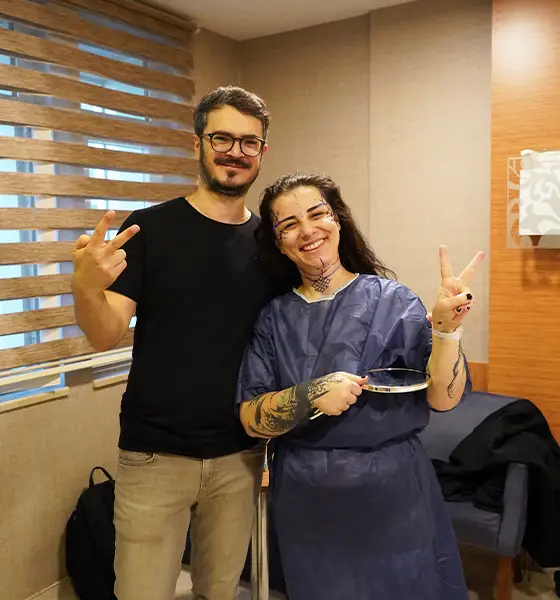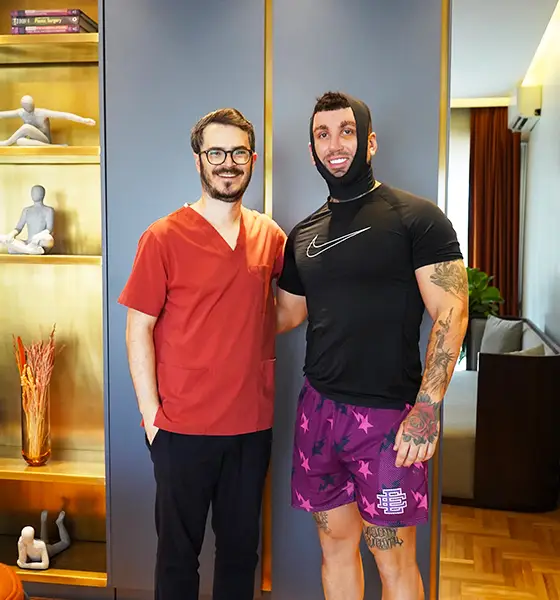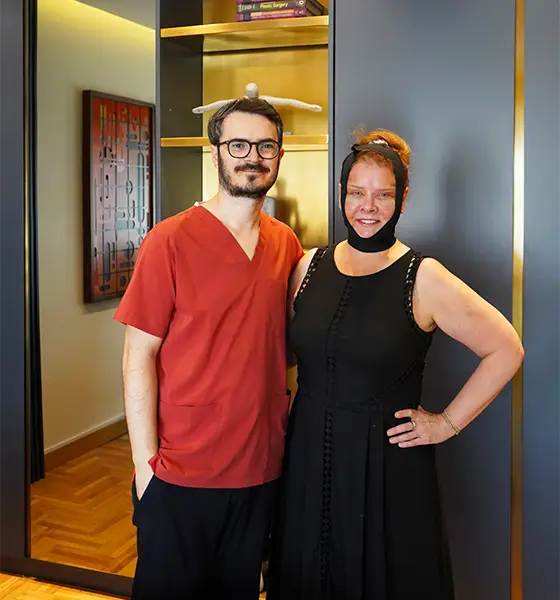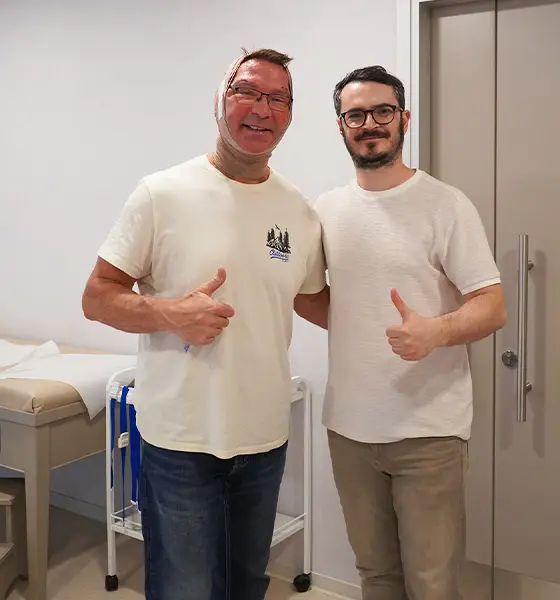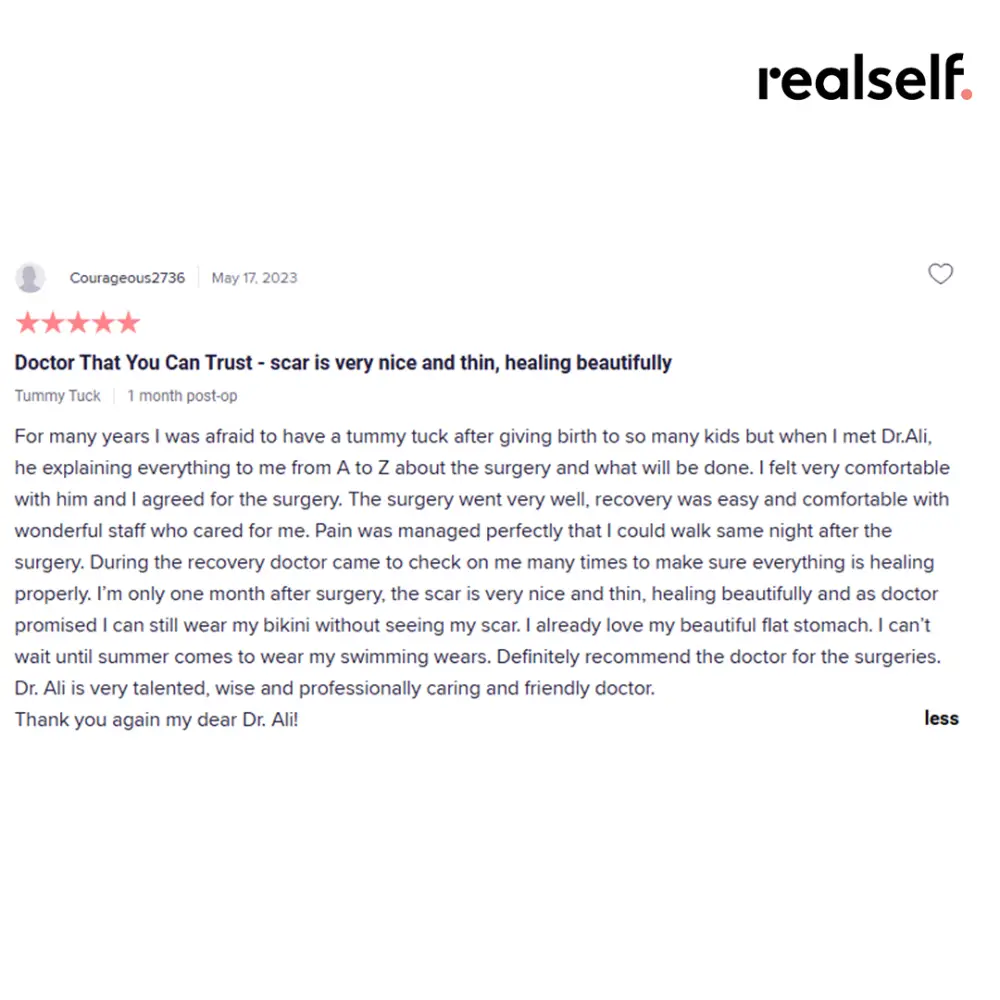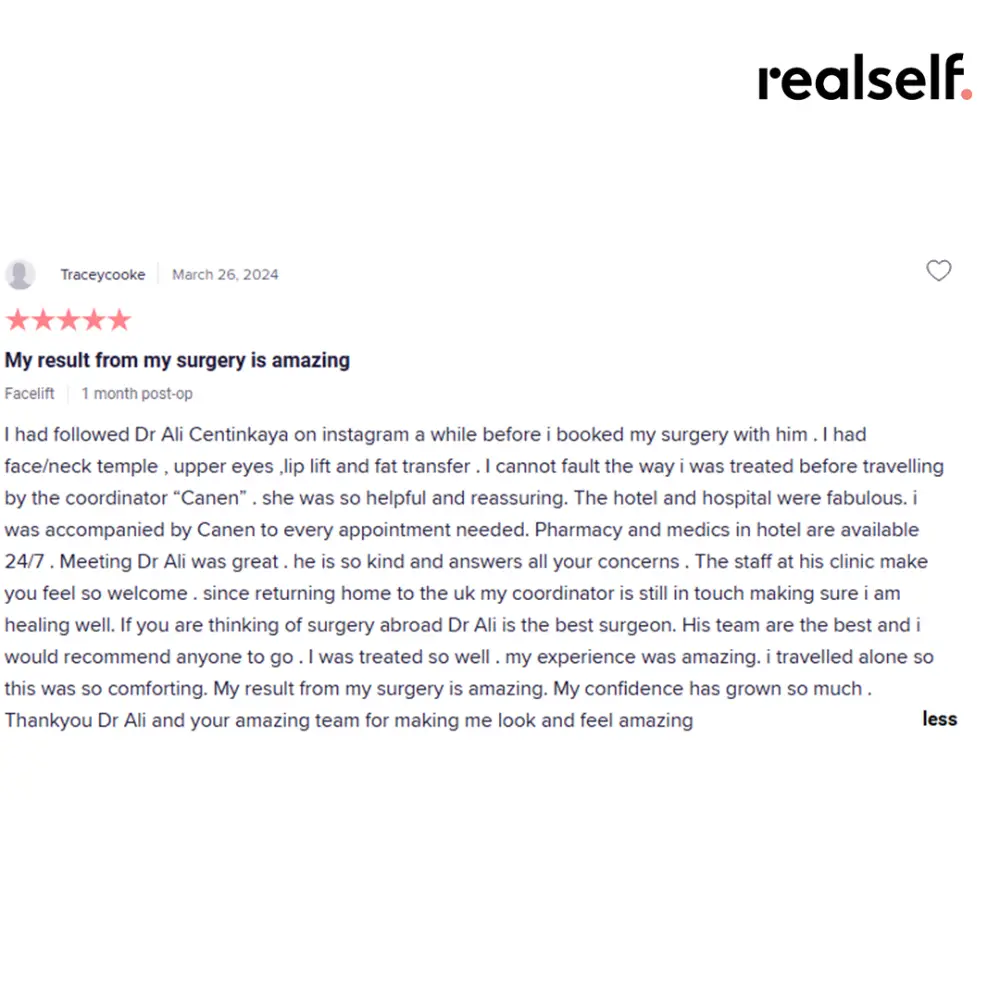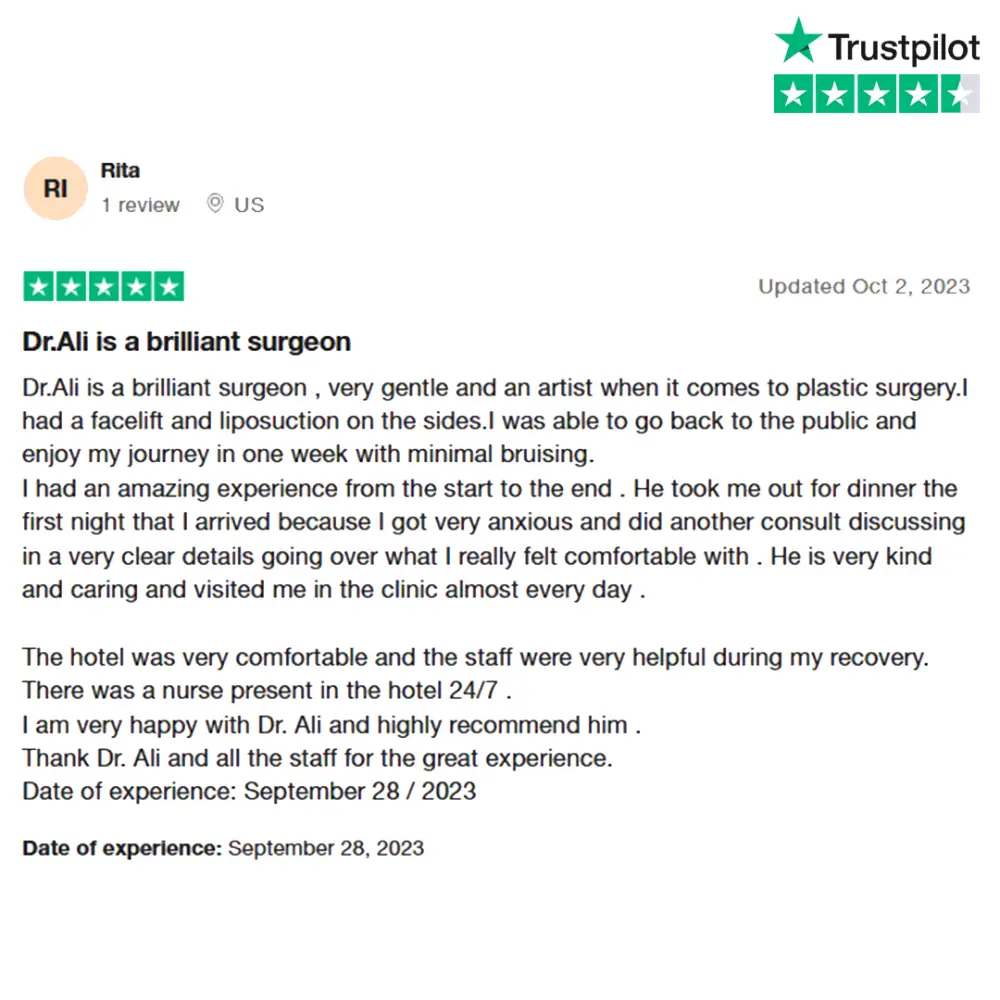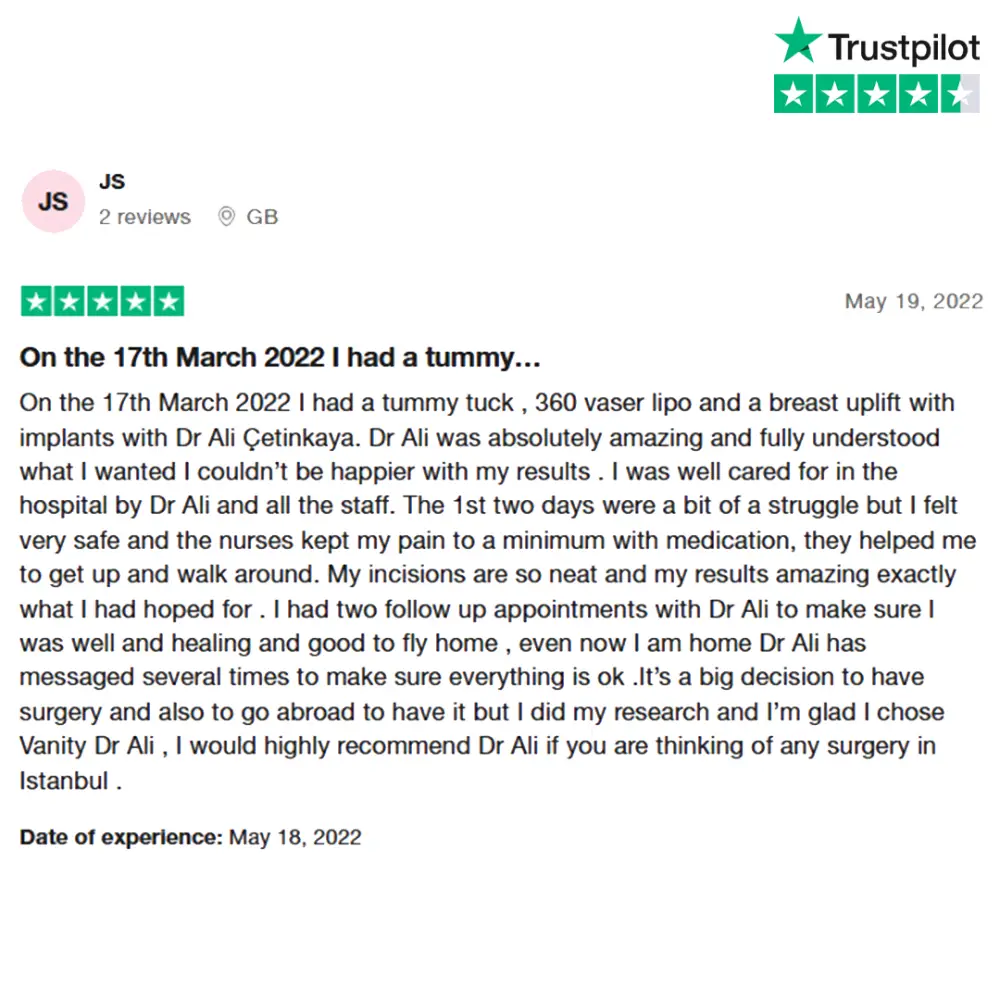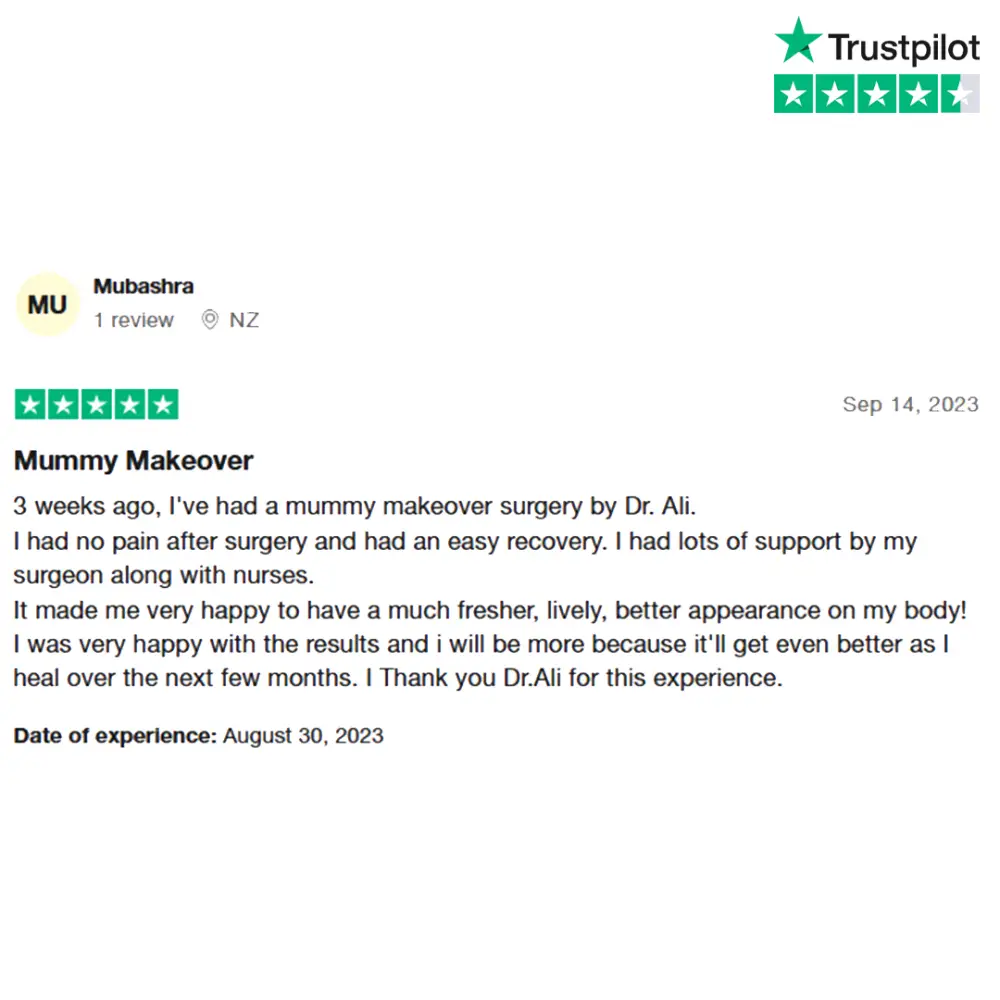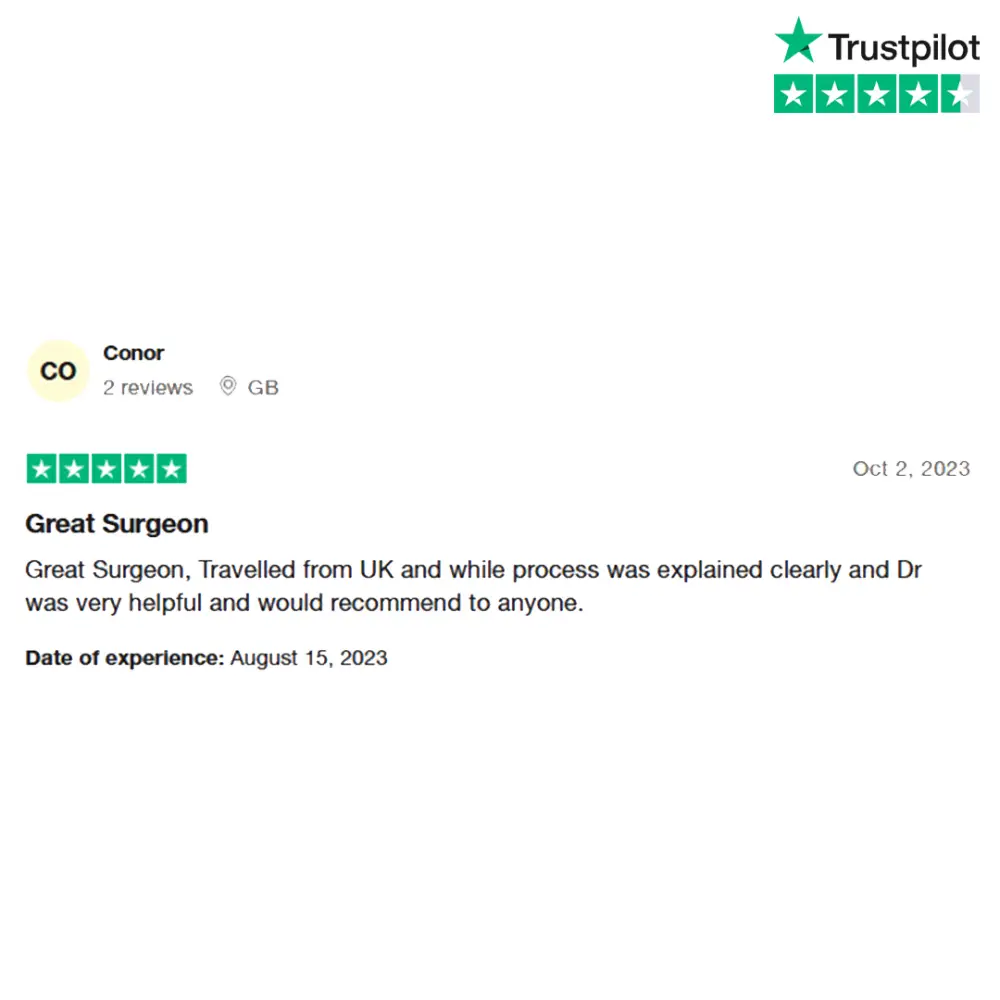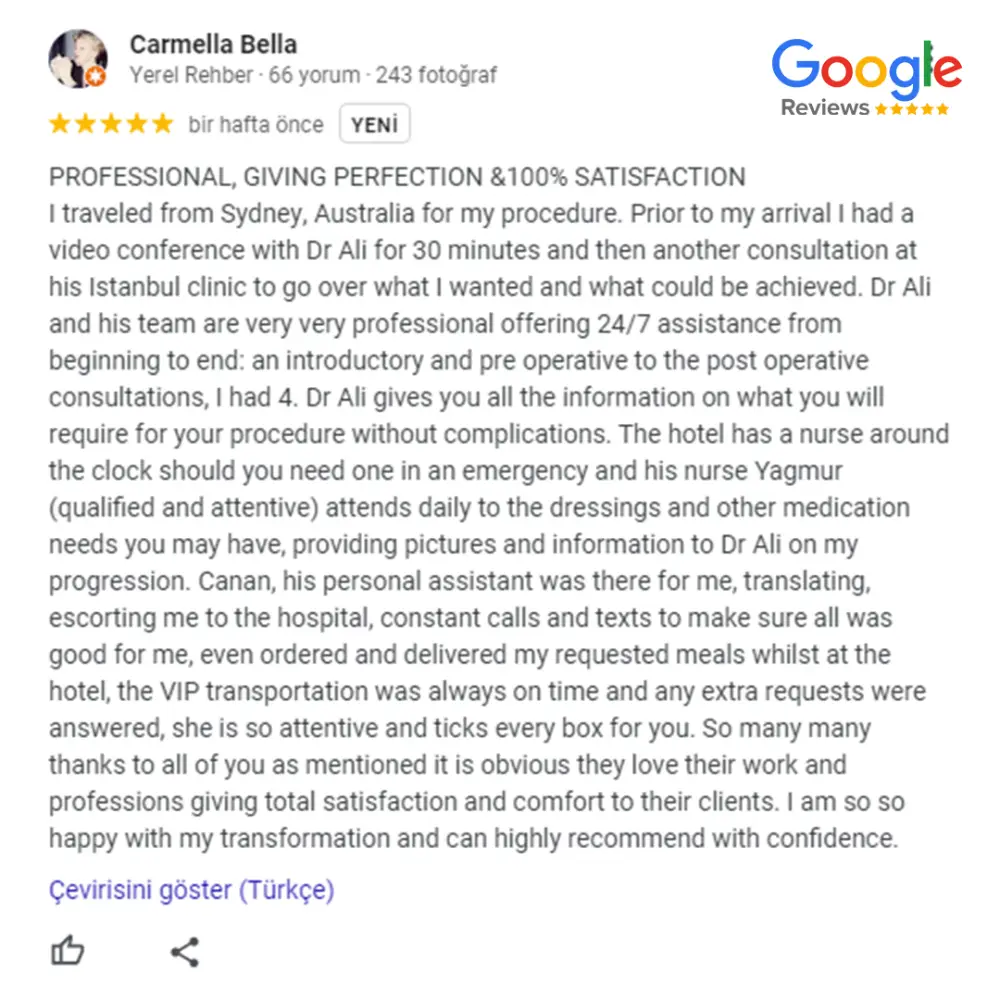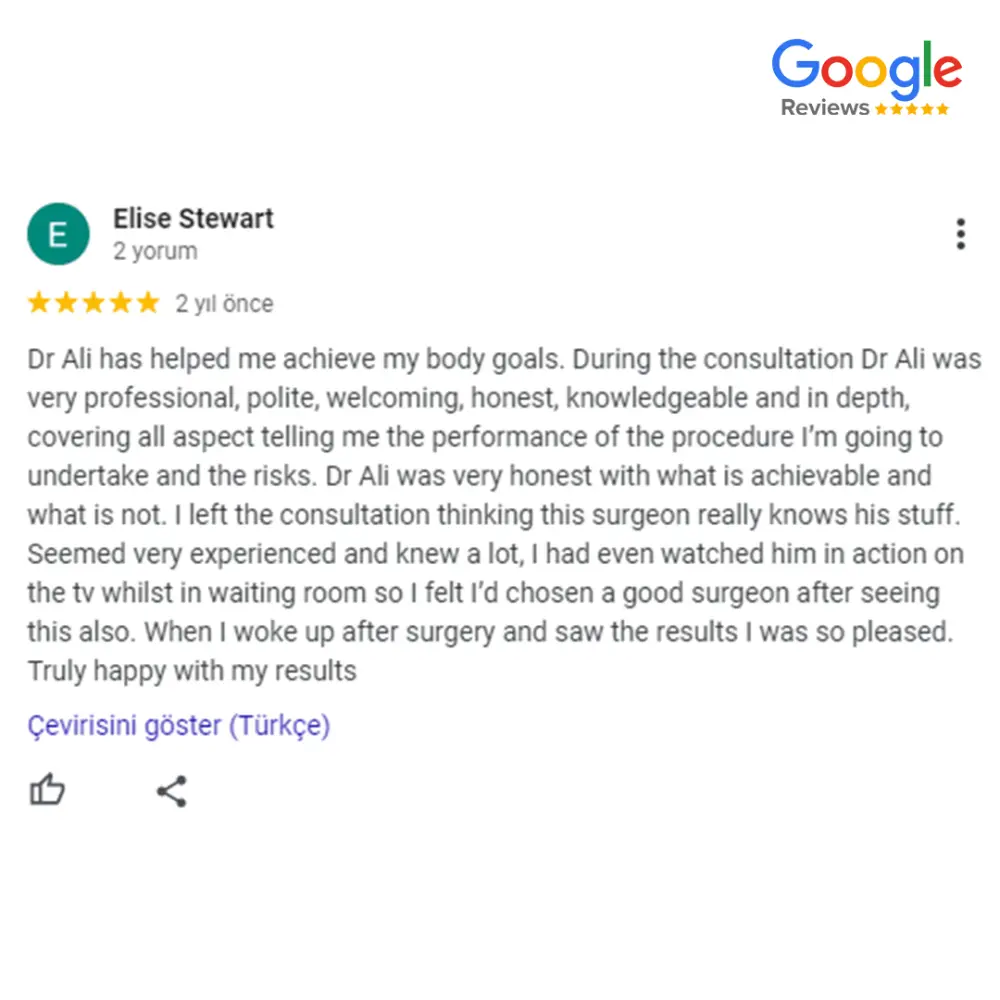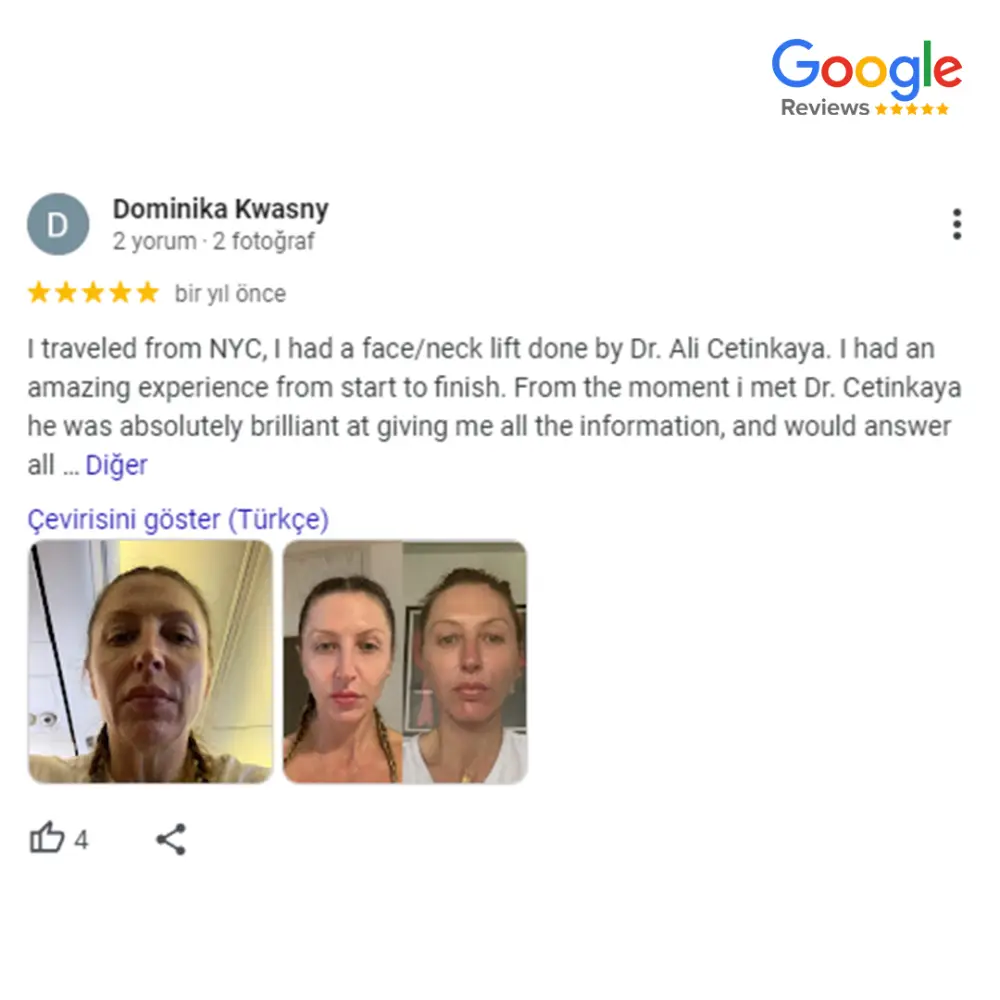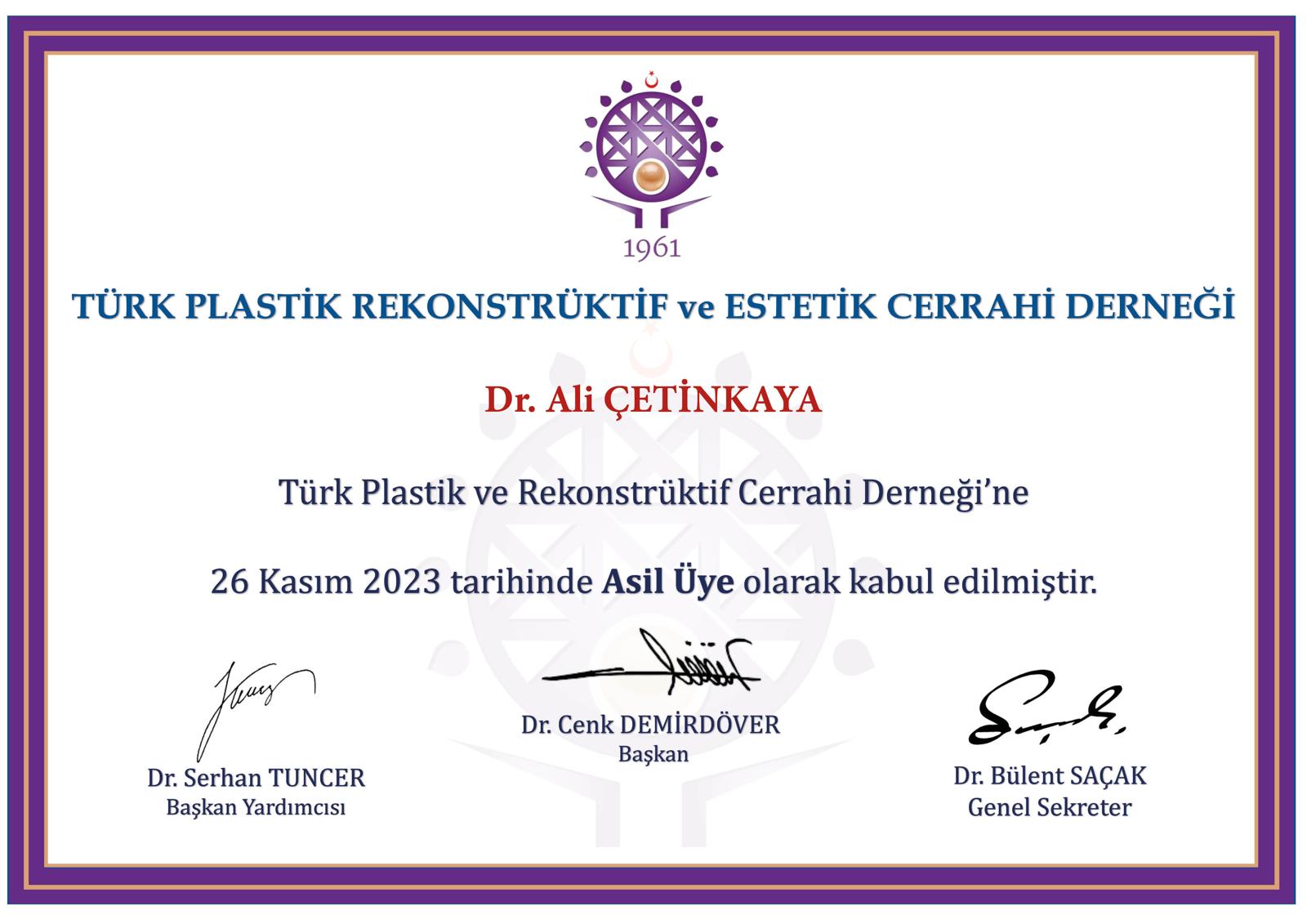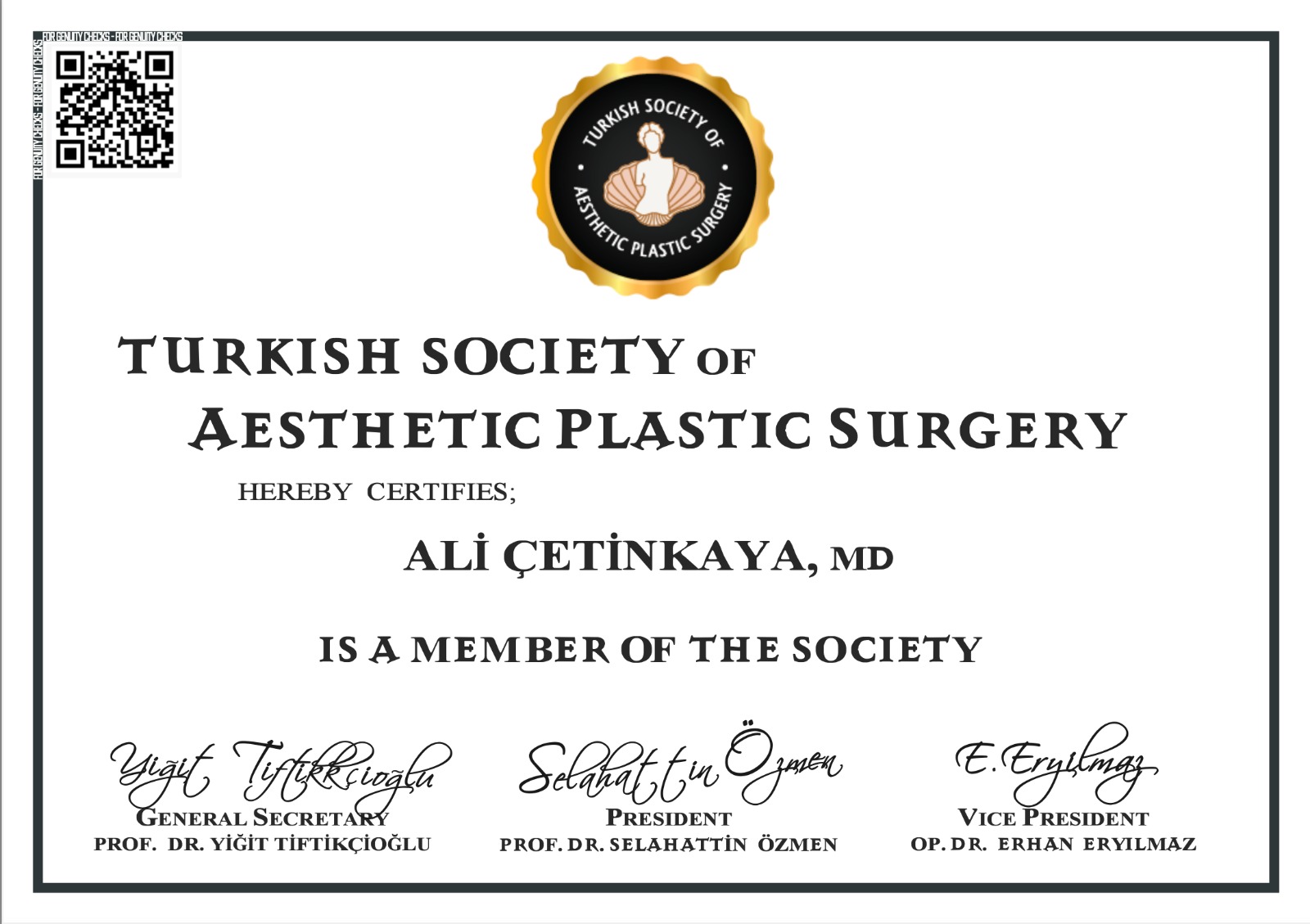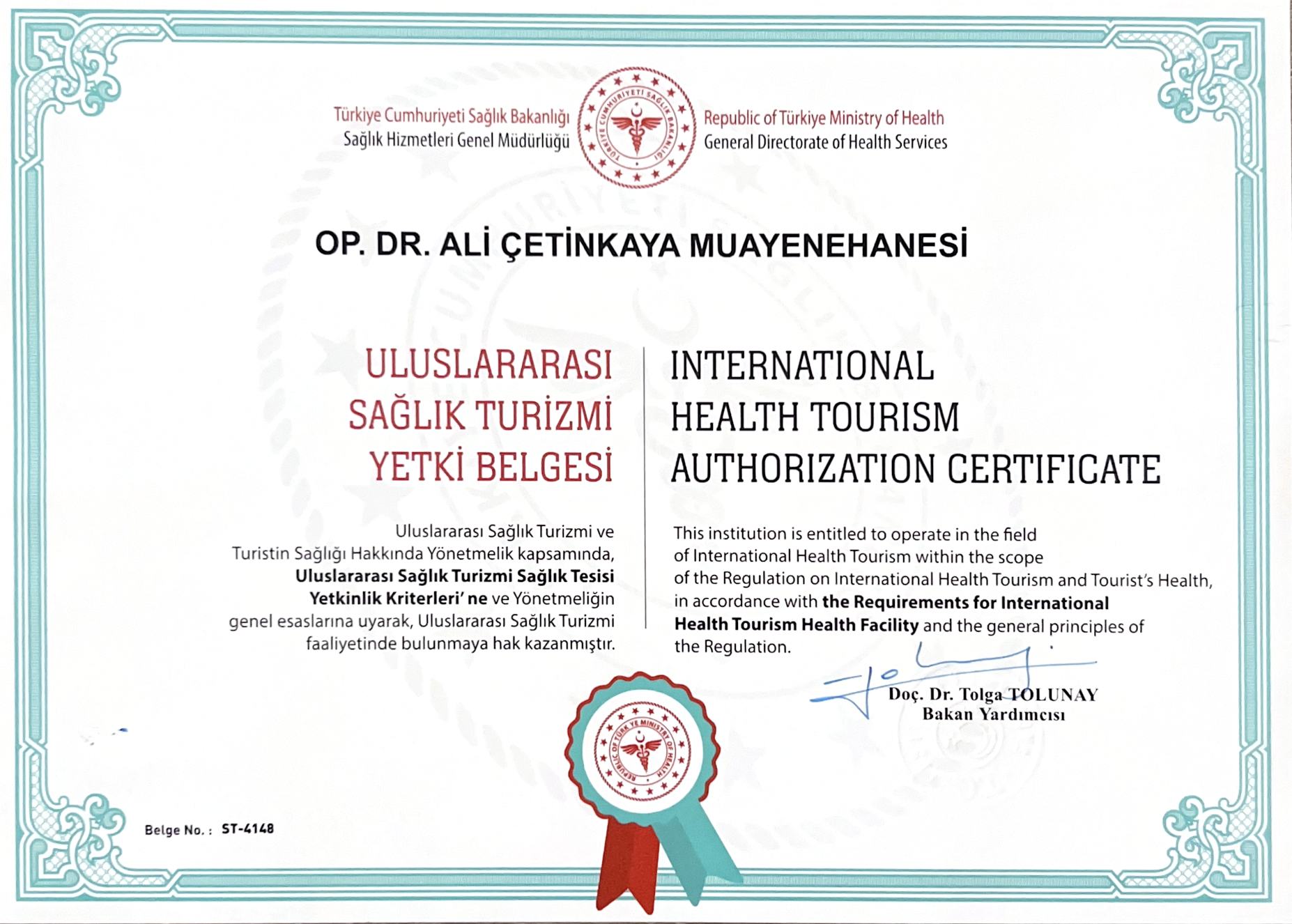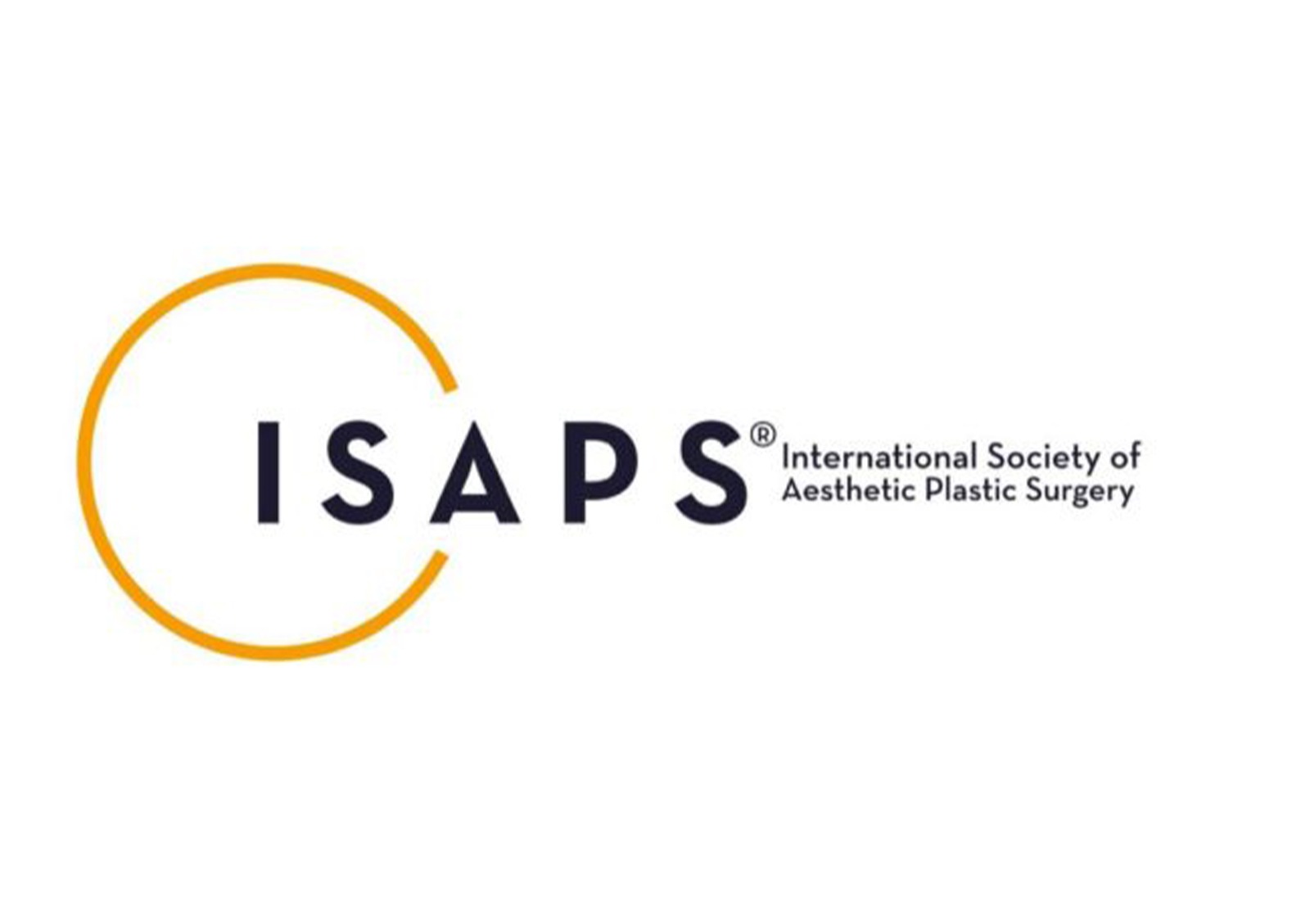Ali Çetinkaya
Best Aesthetic and Plastic Surgery in Turkey
ABOUT MEDeep Plane Facelift in Turkey
Deep Plane Neck Lift in Turkey
Aesthetic and plastic surgery, where medical innovation meets artistic vision, is no longer solely about changing appearance. It has evolved into a discipline that restores confidence and enhances quality of life.
Ali Cetinkaya, MD is recognized as one of the leading specialists in both aesthetic and plastic surgery, known for his academic background, international experience, and patient-centered approach rooted in strong ethical values.
From facial aesthetics to nasal surgery, body contouring to advanced laser technologies, he aims to achieve balanced, natural-looking results through both surgical and minimally invasive procedures.
Our Plastic Surgery Services
As a plastic surgeon in Istanbul, we offer personalized surgical solutions for the correction of congenital or acquired tissue defects, scar revision, and the restoration of functional integrity. Plastic surgery is not only about enhancing appearance—it is a reconstructive medical art that restores tissue function, ensures a natural appearance, and is carefully tailored to each individual.
Plastic surgery procedures such as scar revision, otoplasty (ear reshaping), post-tumor reconstruction, tissue transfer, and facial reconstruction, performed meticulously by Op. Dr. Ali Cetinkaya, prioritize both aesthetic harmony and functional restoration, with the ultimate goal of improving the patient’s overall quality of life.
Our Aesthetic Surgery Services
As an aesthetic surgeon in Istanbul, we offer a wide range of personalized surgical and non-surgical aesthetic procedures focused on the face, breasts, abdomen, and body contouring. Every treatment plan is designed according to the individual’s anatomical structure, age, and expectations—aiming for natural and harmonious results using the most advanced techniques in modern aesthetic surgery.
Procedures such as facelift, rhinoplasty, eyelid surgery, abdominoplasty, breast augmentation, reduction or lift, liposuction, and fat grafting are performed with precision by Ali Cetinkaya, MD, delivering long-lasting, natural, and healthy aesthetic outcomes.
Trusted Expertise in Aesthetic and Plastic Surgery: Ali Cetinkaya, MD
If you are considering aesthetic or plastic surgery to improve your appearance and feel more confident, you can place your trust in Dr. Ali Cetinkaya, a highly regarded surgeon based in Istanbul, known for his refined techniques and attentive care.
Whether you’re seeking facial rejuvenation or full-body contouring, we offer both surgical and non-surgical solutions with a strong emphasis on natural results and evidence-based planning.
To book your first consultation or learn more about your treatment options, please visit our contact page or reach out directly to our clinic.
Frequently Asked Questions
What characteristics should I look for in a plastic surgery clinic?
Choose a clinic with board-certified surgeons, modern facilities, positive patient reviews, and a focus on safety and personalized care.
How should I prepare for my first consultation?
Bring your medical history, a list of questions, and photos if applicable. Be ready to discuss your goals, concerns, and expectations openly.
What are the most common misconceptions about plastic surgery?
Myths include instant results, no scarring, and that it is only for vanity. In reality, it requires recovery, has risks, and can improve quality of life.
How do I manage recovery after plastic surgery?
Follow your surgeon's aftercare instructions, rest, avoid strenuous activities, and attend follow-up appointments for optimal healing.
What is the role of technology in modern plastic surgery?
Advanced technology like 3D imaging, laser treatments, and minimally invasive techniques enhance precision, safety, and patient satisfaction.
What are the psychological benefits of plastic surgery?
Many patients experience improved self-esteem, confidence, and mental well-being after achieving their desired appearance through plastic surgery.
What is the importance of before-and-after photos?
They showcase a surgeon's skill and help patients visualize potential results. Always review them during consultations.
How do I ensure my safety during plastic surgery?
Choose a board-certified surgeon, verify facility accreditation, and discuss all risks and safety protocols during your consultation.
How do I deal with societal stigma around plastic surgery?
Focus on your personal goals and reasons for surgery. Remember, it's your body, and your decision should be about your well-being.
How painful is plastic surgery?
Discomfort varies by procedure, but pain is managed with medications, and most patients find it manageable with proper aftercare.
Is plastic surgery painful?
Discomfort varies by procedure, but pain is managed with medications. Most patients describe it as manageable with proper aftercare.

